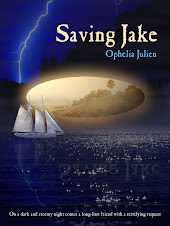Years ago when Stephen King released his non-fiction book Danse Macabre, he spent some time on the topic of xenophobia and how a rise or fall in the popularity of horror films could be related to uneasiness within the nation. He correlated the number of monster and alien horror movies to the Cold War and the USA's citizenry dealing with such frightening concepts as bombs, possible Communist attacks, and the during- and after-effects of McCarthyism. Interestingly enough, the fear factor in the scary movies being released as entertainment (and what King considered to be a pressure-relief valve in troubled times) was two-fold: sometimes the monsters came from outside of our world, and just as (or more) horrifying, sometimes they came from within our own environment. For every alien attack on the Earth, there was another monster that was bred from radiation or other catalyst that originated on our own planet.
We're only two weeks past Halloween, and deep into the season of short days and long, dark nights, so perhaps it isn't fair to lay the uptick in horror movies being released during this time at the feet of our most recent election and attendant campaign season. Perhaps. The past decade, at least, and maybe longer than that, has seen a decided rise in horror stories, and not just in the movies. Stephen King first came to national attention in the '70's, and along with him were Clive Barker, Dean Koontz, and (including him because I must) John Saul. Since the '70's, more writers have been taking on the topics of monsters as well as the supernatural. Vampire popularity is a sine wave, rising and falling but never quite going away altogether. Then there are the zombies, the werewolves, and thanks to M. Night Shyamalan who reintroduced the ghost story with The Sixth Sense, spirits, vengeful and otherwise, as well as demons, are a mainstay.
I know these are uneasy times on the home front (not to mention the rest of the global community) and so in light of King's observations, our current cornucopia of not only horror movies, but TV shows, books, and graphic novels is no surprise.
But I would venture to throw in a little bit of hope. With the onslaught of scary movies has also been a rise in the number of superhero flicks. The amount of hope generated by beings who have superpowers and use them to protect us mere mortals is both satisfying and a relief. Maybe as great a pressure-relief valve as the horror movies that give us a basically safe place to deal with fear.
These are unsettling times and it will be interesting to see what kinds of stories result from this uneasiness. I'll be looking forward to the ghost stories -but I'll also be looking forward to the superheroes. (And not just because the guys are always so hot!) While the ghost stories give me a place to deal with fear, the superheroes give me hope and usually, a bunch of laughs, too. We all cope the best way we know how. Ghosts and superheroes? I'm there.




